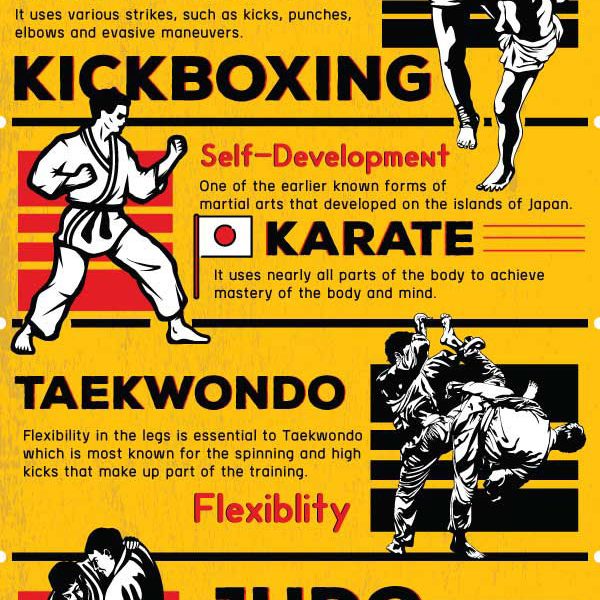Checking Out The Rich Heritage And Spiritual Dimensions Of Martial Arts: A Complete Assessment
Checking Out The Rich Heritage And Spiritual Dimensions Of Martial Arts: A Complete Assessment
Blog Article
Created By-Lauridsen Wall
Enter the ancient globe where martial arts were born out of necessity in varied areas. Societies crafted one-of-a-kind combating styles linked with historic contexts. Techniques advanced over centuries through dedicated practice and social exchanges. Today, contemporary martial arts blend standard elements for optimal performance. Philosophically, martial arts highlight technique, self-improvement, and consistency. Respect, humbleness, and balance are foundational concepts leading professionals in the direction of development and resilience. Check out the midsts of this rich background and ideology to reveal the profound influences forming this enduring self-control.
Origins of Fighting Style
Martial arts came from different areas worldwide, progressing as practical battle systems to resist risks. These ancient combating designs were created out of requirement, with each culture crafting strategies suited to their one-of-a-kind atmospheres and difficulties. From the grappling arts of Jujutsu in Japan to the striking methods of Martial art in China, martial arts were deeply linked with the historical, social, and cultural textile of their particular cultures.
In Japan, the samurai class refined martial arts like Kenjutsu, the art of the sword, which later on advanced into the much more popularized type of Kendo. On the other hand, in Brazil, Capoeira emerged as a mix of dancing and battle, created by enslaved Africans as a way to resist injustice. Each fighting style brings with it an abundant history and ideology, showing the values and beliefs of the people who exercised them.
As you look into the beginnings of martial arts, you discover a tapestry of human ingenuity, durability, and the unrelenting spirit of warriors throughout time.
Development of Techniques
With centuries of technique and refinement, fight techniques within numerous martial arts have undergone an extensive advancement. From old styles like Martial art and Martial arts to much more modern-day disciplines such as Brazilian Jiu-Jitsu and Krav Maga, the development of methods has actually been driven by a combination of cultural influences, useful applications, and technical innovations.
One considerable element of this development is the cross-pollination of methods between various martial arts. For instance, methods from standard Japanese Jiu-Jitsu were integrated into the development of Judo by Jigoro Kano in the late 19th century. This mixing of designs has brought about the development of crossbreed martial arts like Mixed Martial Arts (MMA), which incorporate components of striking, grappling, and entry techniques.
Moreover, the advancement of methods has actually been formed by the raising emphasis on efficiency and effectiveness in battle. Experts have constantly looked for to fine-tune their methods with strenuous training, trial and error, and competitors, resulting in the advancement of highly specialized and effective battling styles. In general, the development of strategies in martial arts reflects the dynamic nature of fight and the recurring pursuit for renovation and development.
Thoughtful Foundations
Exploring the underlying philosophical concepts of martial arts provides understanding right into their core values and leading ideas. At the heart of many martial arts self-controls is the concept of technique itself. By training your body and mind to serve as one natural system, you grow discipline that extends past the dojo or gym into everyday life. https://www.monroenews.com/story/news/education/2023/01/12/womens-self-defense-seminar-taekwondo-offered-at-mccc/69797810007/ -control encompasses regard, humility, and self-control, shaping not simply your physical abilities but likewise your personality.
Another fundamental philosophical structure in martial arts is the concept of constant self-improvement. The journey of mastering a martial art is perpetual, with practitioners regularly aiming to better themselves, both physically and emotionally. This concentrate on growth promotes resilience, determination, and a development mindset that can be related to all elements of life.
Additionally, martial arts emphasize the relevance of consistency and equilibrium. Strategies are developed to make use of an opponent's power against them, highlighting the concept of generating and rerouting force instead of satisfying it head-on. This approach reaches social relationships, advertising relaxed resolutions and good understanding. By welcoming these philosophical foundations, martial musicians not just enhance their fight abilities however likewise grow a lifestyle fixated personal growth, regard, and harmony.
Verdict
Finally, the background and ideology of martial arts supply an abundant tapestry of tradition, self-control, and self-improvement.
Consider example the tale of Bruce Lee, that transformed martial arts by blending different designs and approaches to develop his very own distinct form of Jeet Kune Do.
With https://troydmudl.blogs100.com/30710353/power-up-your-youngster-s-advancement-with-martial-arts-educating-for-boosted-strength-focus-and-durability and advancement, martial artists continue to push limits and influence others to reach their full potential both in combat and in life.
